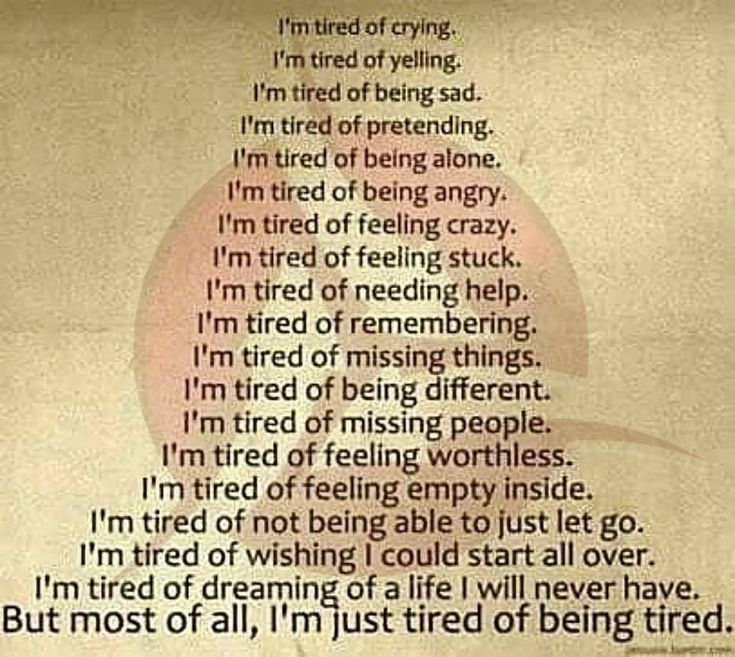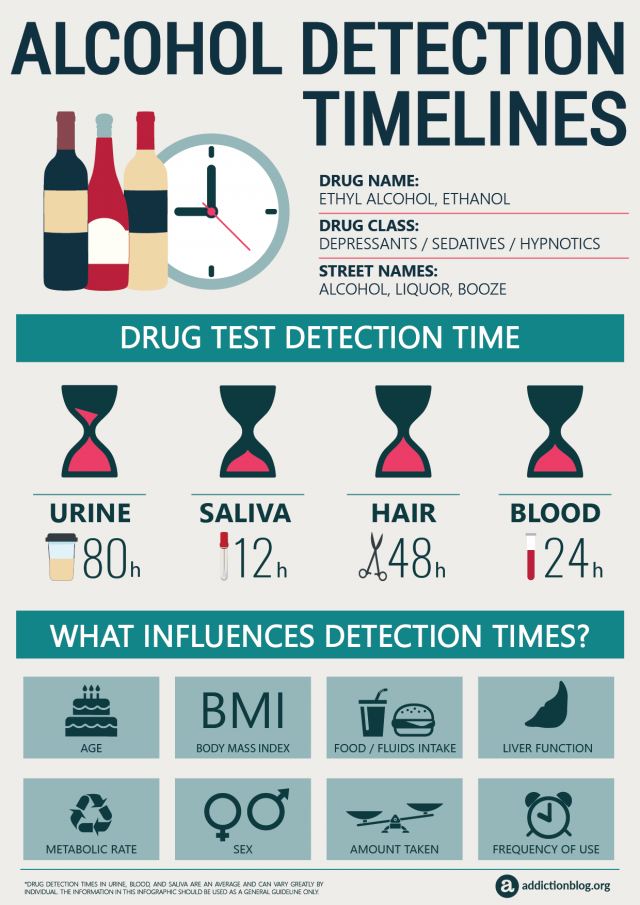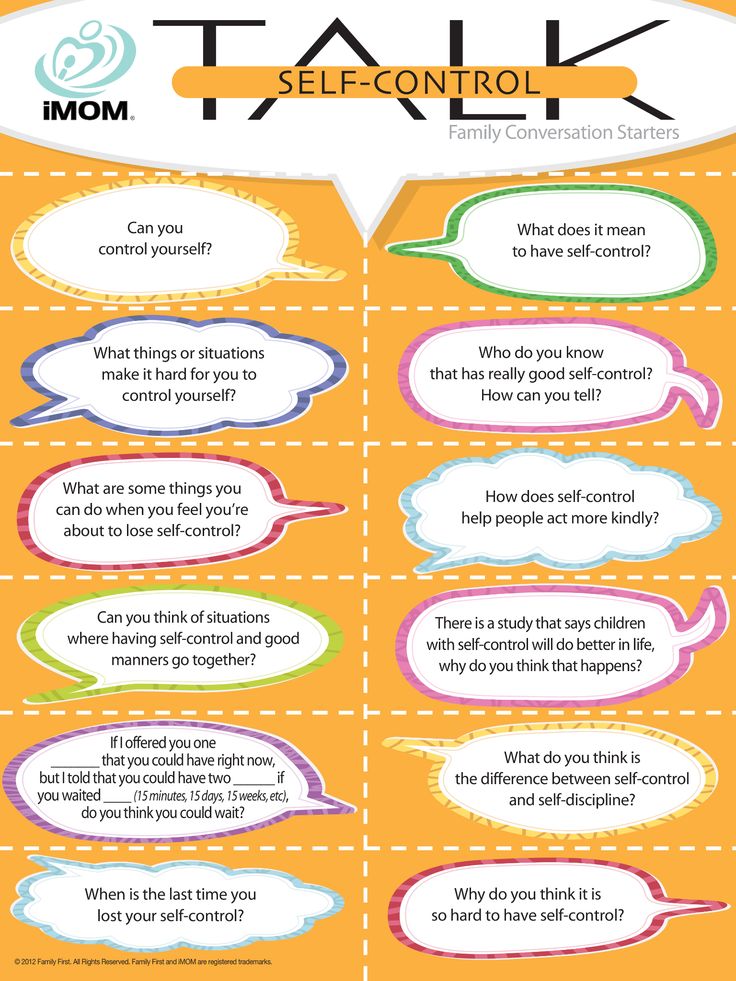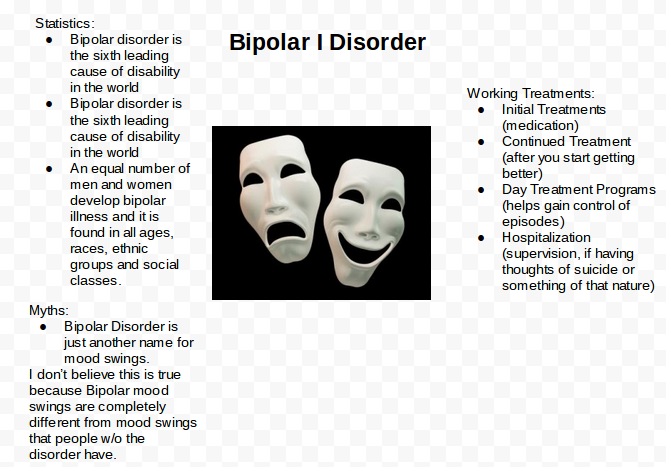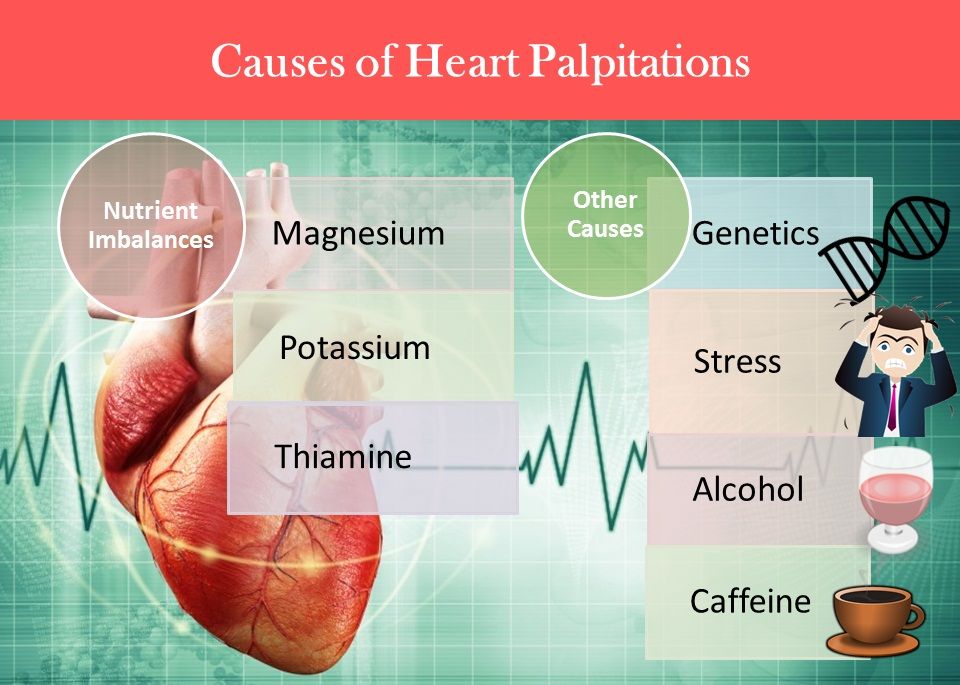Surviving an emotional affair
6 Strategies For Surviving Emotional Infidelity
Things aren’t always what they appear to be. And not everything has a textbook definition or obvious, arrow-pointing signs. Affairs, for example, aren’t necessarily driven by steamy sex and clandestine meetings. They can be masked by a slow-growing emotional connection that perhaps no one saw coming. Uncovering and surviving emotional infidelity, therefore, can be tricky.
If you are married, think back to your wedding vows. What did you promise to do? What did you promise not to do?
You wouldn’t be alone if the underlying message of your vows was “I promise not to have sex with anyone else for the rest of our lives.”
But commitment, as we all know, is about so much more than not crossing the Rubicon through sexual infidelity.
Marriage is a constant balancing act of giving to your spouse what you give to no one else – not just physically, but emotionally, as well.
It’s also an ongoing practice of
not giving to someone else what belongs only to your spouse and your marriage.And therein lies the rub of emotional infidelity.
When your focus is only on not crossing the line of sexual infidelity, you essentially leave the side door and all the windows unlocked.
What’s the harm? You’re “just friends.” S/he “gets you,” understands, listens, makes you laugh and feel special. You could talk for hours – and often do.
And yet, the relationship isn’t so innocent that you’re willing to be completely open about it with your spouse. This is yours. All yours.
Toying with temptation under the guise of friendship becomes easy. Who knew that you could get so much pleasure and gratification out of a relationship without consummating it sexually?
The deceit lies in the belief that it’s all “innocent.” No feely, no foul.
The danger lies in the denial of unfaithfulness to your spouse and the heightened risk that your emotional relationship may become physical.
The flirtation and sexual chemistry are always there, after all. You’re just not acting on them because, y’know, you’re married.
You’re just not acting on them because, y’know, you’re married.
But you’re still sharing intimacy. Emotional intimacy. The stuff that many people crave more than physical intimacy and need before they can be physically intimate.
Surviving emotional infidelity starts with this understanding and the realization that an emotional affair can be just as devastating as a sexual affair.
It can also be more difficult to end precisely because of the absence of sexual betrayal.
You’re always dancing around the unspoken obvious, carving time out of your life to rush into all the feels of emotional temptation.
Surviving infidelity in your marriage is a long, difficult process of deep examination – of yourselves and your marriage – and rebuilding trust.
And that is as true for emotional infidelity as it is for sexual infidelity.
So how do you get past it? And can your marriage survive it?
Here are 6 strategies for surviving emotional infidelity.

End the affair. Completely.
Just as with sexual infidelity, an emotional affair can’t continue if you intend to save your marriage.And there’s no pretending you don’t have the feelings and connection you have in the other person’s presence.
This critical step is easier said than done because emotional connection and emotional intimacy can be so difficult to pinpoint.
Does this mean I’ll never be allowed to have friends of the opposite sex? Will I be “cheating” every time I enjoy myself and feel comfortable around another man/woman who’s not my spouse?
The distinction lies in how you lived that connection.
Did you hide it from your spouse? Were your phone calls, text messages, and meetings done secretly?
Were you strategic when talking about this person, being careful not to let your attraction show?
Did you share secrets with this other person that belong only to your marriage?
And did you stop sharing your feelings, thoughts, needs, and experiences with your spouse because you were sharing them elsewhere?
Did you fantasize about having a sexual relationship with this person?
A yes to any one of these questions is a red flag.
 And, even if you didn’t see the flag waving early on in your “friendship,” you see it now.
And, even if you didn’t see the flag waving early on in your “friendship,” you see it now.Examine the affair in the context of your relationship.
Emotional intimacy is at the heart of a healthy marriage. It implies – and is sustained by – qualities like mutual respect, curiosity, listening, feeling heard, trust, and emotional safety.When emotional intimacy is achieved outside the marriage, the question becomes, What’s happening or not happening inside the marriage?
Have you both been so preoccupied with jobs and children that you have forgotten one another?
Have you stopped talking about anything outside the basics of income, bills, homework, and your kids’ needs?
Have you forgotten what your relationship was like when you first started dating? Your mutual curiosity, undivided attention, eagerness to simply be in one another’s presence?
Emotional affairs don’t happen in a vacuum.
Neither does surviving emotional infidelity.

Share your feelings and needs with your partner with no judgment or blame.
If you’re going to put the emotional affair into perspective so you can move past it and avoid a recurrence, the two of you have to talk.But how do you do that when one of you has been living a secret life of emotional fulfillment and the other has been left in the dark? How do you lay it all on the table without defensiveness, anger, judgment, and blame wiping it all off?Non-violent communication (NVC) is a language of compassion that seeks mutual understanding at the level of a person’s needs.
The premise of NVC is that underlying all human actions are needs that people are seeking to have met. And acknowledging and understanding those needs can create a shared basis for connection and cooperation.
Not sure you can pull that off on your own?
Well, that’s what the experts are here for….
Give your marriage the gift of couples counseling.

Emotions are difficult to understand, let alone navigate. And yet, they are at the heart of everything, from relationships to buying a house.Your marriage is too important to leave to a guessing game when it’s in crisis. So why not do the deep exploration and sharing under the guidance of experts devoted to teaching marriage-saving skills?
Work to rebuild trust and increase emotional intimacy within your marriage.
One of the key reasons that some couples survive infidelity and others don’t is that the survivors are willing to do whatever it takes.They are individually and collectively willing to take responsibility for their actions within (and outside) their marriage.
They are willing to be vulnerable by exploring and learning to communicate their feelings, thoughts, and needs.
And they are willing to do the humble work of re-earning trust and learning to forgive.
…all things we focus on in the therapeutic setting.

Have a clear, mutual understanding of what constitutes infidelity within
your marriage.
Ideally you would have this understanding and agreement before getting married. You could then continue to examine and discuss it in the context of your life experiences.If you have reached this point in your marriage on the basis of assumptions and unspoken rules, then now is the time for clarification.
In many ways, surviving emotional infidelity is as difficult and even more difficult than surviving sexual infidelity.
But why?
Regardless of gender and stereotypes, we all yearn to be heard at a heart level. We fall in love with our hearts. We make choices with our hearts that often make our heads spin.
And we all want the assurance of a safe place to excavate a lifetime of untapped emotions and experiences.
That emotional intimacy is the foundation for the exponential growth that can happen only in the context of relationships.
And it’s worth everything.
Mary Ellen Goggin offers relationship coaching for individuals and collaborates with her partner Dr. Jerry Duberstein to offer private couples retreats. To learn more about working with Mary Ellen, schedule a ½ hour complimentary consultation.
Here's What You Need To Know About Surviving Emotional Infidelity In Marriage
Everyone has an unspoken standard regarding fidelity. Regardless of whether couples discuss their beliefs and expectations before tying the knot, they have them. For most couples, the thought of getting over sexual infidelity is unbearable. But surviving emotional infidelity in marriage can be just as painful, sometimes even more so.
What is it about an emotional affair that is so hard to wrap our heads around? And why does surviving emotional infidelity in a marriage feel as gut-wrenching as surviving sexual infidelity?
What is emotional infidelity?
Understanding emotional infidelity starts with understanding intimacy. Underlying intimacy is a mutual vulnerability, the willingness to share what might otherwise feel uncomfortable or risky to share. Intimates feel safe with their vulnerability — and they make vulnerability safe for the other person.
Underlying intimacy is a mutual vulnerability, the willingness to share what might otherwise feel uncomfortable or risky to share. Intimates feel safe with their vulnerability — and they make vulnerability safe for the other person.
Emotional infidelity refers to the behavior that one partner engages in, which fosters emotional intimacy in the here-and-now with someone else and sometimes promotes the possibility of sexual intimacy in the future.
The biggest challenge to recognizing and preventing emotional infidelity is that it can be so insidious in its onset and progress. Because it doesn’t involve sex, the developing intimacy may fly under the radar of detection in a marriage.
There is no put-your-finger-on-this “aha” moment of proof to make it clear that you are dealing with an affair. Heck, even the involved parties may not recognize the slow boil taking place. They may be co-workers, neighbors, or old high school flames reconnecting through social media. No harm, no foul, right?
But suddenly, there is the onset of those old, familiar feelings — the same ones that once made you long for the constant company of your spouse-to-be. You can’t wait to share your experiences, emotions, and perspectives. You seek out this other person’s opinions, thoughts, advice, laughter.
You can’t wait to share your experiences, emotions, and perspectives. You seek out this other person’s opinions, thoughts, advice, laughter.
You subordinate your spouse’s significance and make this other person your first choice for connection. In a split second, you choose — often without realizing you are making a choice — and you “innocently” reach for someone else. You can disguise it as coffee, work-over-lunch, or simply “checking in.” But deep inside, you know the needle on your moral compass is pulling to the wrong side.
The danger is that one-half of emotional affairs lead to sexual infidelity.
When you and your spouse dated, you didn’t think in terms of “affair” because you were “building a relationship.” You were willingly and happily doing the vulnerability dance — you reveal a little, and then your partner does too, and deeper into love you fall.
You weren’t thinking ahead to the possibility of surviving emotional infidelity. In marriage, sharing emotions and being vulnerable build and maintain trust. So finding someone who wanted to know your deepest thoughts was a prelude to forever, the formation of a special bond.
So finding someone who wanted to know your deepest thoughts was a prelude to forever, the formation of a special bond.
But once you have committed to forever, the rules of engagement change when it comes to people outside the marriage. They have to — because intimacy is built in the same way, regardless of who’s building it.
Your marital commitment is to nourish, deepen, and preserve intimacy with your spouse and protect it against possible trespass from the outside. And therein lies the difficulty in detection, especially after years of marriage and the onset of boredom and frustration.
How to survive emotional infidelity
If you are involved in a marriage suffering from an emotional affair, there are things you need to know about surviving emotional infidelity in marriage.
When someone feels threatened by a friendship between his/her spouse and someone else, the response of the spouse is critical. If s/he dismisses the suspicion as an infringement on a personal right “to have friends,” the hurt spouse can end up suffering alone.
Surviving emotional infidelity in marriage starts with a mutual commitment to the good of the marriage. That means that, if one spouse feels threatened, the other spouse takes that discomfort seriously.
Emotional affairs rely on secrecy as much as sexual affairs do. The person engaged in the relationship keeps it as a personal entitlement and denies access to his spouse. And therein lies the threat to essential trust in a marriage.
Examine your “friendship” for signs of emotional infidelity
If you are the spouse having an emotional affair, it’s essential to examine the friendship and be honest about what it is providing. Are there things missing in your marriage that you are seeking elsewhere? Has your communication with your spouse lost its intimacy? Have you and your spouse become complacent in your marriage?
Your willingness to do a fearless self-examination is essential for surviving emotional infidelity in marriage. After all, you hold the key to a relationship that your spouse can’t “prove” yet decisively feels like a threat.
Seeking emotional intimacy outside of marriage is a red flag in and of itself. But, if you can resist the allure into deeper, soulful exploration with this person, you can open the door to greater intimacy in your marriage.
The temptation to keep an emotionally intimate friendship alive can be overwhelming, especially if you have convinced yourself that “no sex equals no harm.”
But acknowledging the potential for harm is the first step to surviving emotional infidelity in marriage.
Getting help with examining the meaning of your friendship and drawing you back into emotional intimacy with your spouse is the next step. The most effective way to heal is through couples therapy or an intensive marriage counseling retreat that helps you to focus on your marriage.
Emotional affairs are confirmation that intimacy and fulfillment aren’t limited to the bedroom. They can stir up sexual feelings and even lead to sexual infidelity, but they are powerful in and of themselves.
For some, an emotional affair is more heart-breaking than sexual infidelity. An emotional affair reminds us of our yearning for love and deep connection with another unshared with anyone else. Emotional infidelity constitutes a betrayal; a spouse is connecting with another person in a way reserved for his/her spouse in breach of the implicit understanding undergirding the marriage.
Of course, the best advice for surviving emotional infidelity in marriage is not allowing it to happen in the first place. And that means having open, fearless discussions with your spouse about what constitutes infidelity. When you operate from the same playbook, you are more likely to recognize potential threats before they do damage. And you are more pro-active and vigilant about nourishing emotional closeness in your marriage.
What is emotional betrayal, how to survive and forgive it
PsychologyRelationships
With the development of mobile communications, the Internet, the adjective "emotional" is increasingly attached to the standard definition of betrayal to describe a relationship in which physical intimacy is replaced by feelings and thoughts.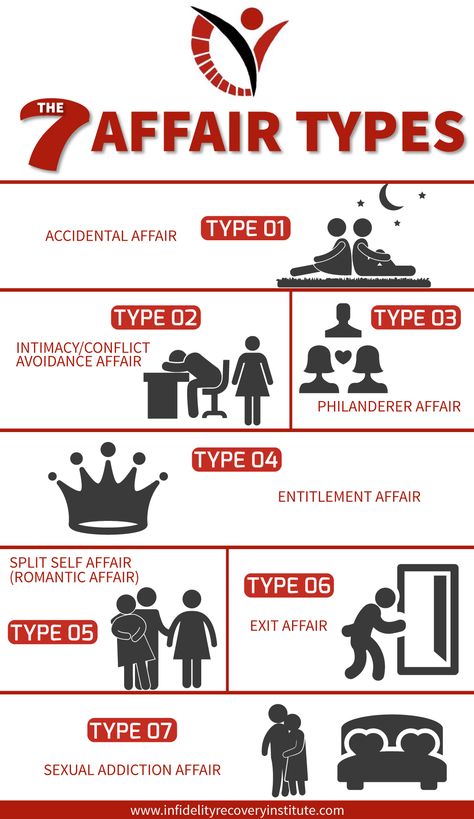
Lack of physical contact does not relieve emotional infidelity from harmful consequences, especially for women. The Journal of the International Academy of Sexual Research published official statistics on this issue: men are more upset by physical infidelity (without emotional connection), and women are more upset by emotional infidelity (even if there is no sex). 65% of heterosexual women participating in a UCLA study confirmed that physical infidelity causes them as much pain as emotional infidelity. nine0003
What is emotional cheating?
The traditional definition of infidelity does not imply ambiguity - it is a sexual relationship on the side, in which one of the partners (spouses) is involved. Emotional cheating is a type of infidelity based on intimacy without physical contact.
Usually, when cheating, people meet face to face and make love, that is, sex. In case of emotional betrayal, it is not necessary to meet - you can meet in FaceTime or Zoom, call on WhatsApp or Skype. Or still meet - say, at lunch, on weekends, or on the way from work (unless you work together, which often happens with emotional novels) - and pour out your soul to each other without being distracted by intimacy. That is why many of those who cheat emotionally do not consider it infidelity. In their opinion, if there is no physical contact, such behavior is not considered cheating. nine0003
Or still meet - say, at lunch, on weekends, or on the way from work (unless you work together, which often happens with emotional novels) - and pour out your soul to each other without being distracted by intimacy. That is why many of those who cheat emotionally do not consider it infidelity. In their opinion, if there is no physical contact, such behavior is not considered cheating. nine0003
But no matter how "emotional lovers" reassure themselves, this kind of connection brings them together so much that it inevitably damages existing relationships. The topics discussed become more and more personal, overgrown with secrets that are hidden from the husband / boyfriend - and so, gradually, immaculate communication with a friend / colleague develops into a connection for which you are ready to deceive your partner, hiding the true essence of your parallel story.
Signs of emotional betrayal
The one who is being cheated on (emotionally or physically), sooner or later will feel a lack of attention, the lion's share of which goes to the one who is on the side. Call the sweetheart for a conversation as soon as you guess that you are on the sidelines with him. If he starts to hide the truth after your calls for honesty, most likely, your relationship will have a sad prognosis. Trust your intuition, it never fails.
Call the sweetheart for a conversation as soon as you guess that you are on the sidelines with him. If he starts to hide the truth after your calls for honesty, most likely, your relationship will have a sad prognosis. Trust your intuition, it never fails.
If you are emotionally on a spree, keep in mind that cheating has a characteristic escalation. Events are developing incrementally: at first you are pleased to communicate, then you begin to look for moral support, gradually begin to complain about the faithful and, as a result, hide the topics discussed with the “friend”. Then you will begin to compare him with your partner, noting obvious advantages, but at the same time you will deny the level of intimacy that you have achieved with the hero of your emotional romance. Delete letters, delete messages, turn off notifications will become a habit for you - simply because they contain information that is not intended for your partner. nine0003
“The transition from emotional intimacy to physical intimacy occurs naturally, although not necessarily,” comments Irina Tkacheva, a psychologist and trauma specialist. - Over time, an emotional connection on the side leads to a decrease in attraction to a partner or unwillingness to spend time with him. When plunging into an emotional romance, you should be aware of what you are risking for the sake of this dubious intimacy.
- Over time, an emotional connection on the side leads to a decrease in attraction to a partner or unwillingness to spend time with him. When plunging into an emotional romance, you should be aware of what you are risking for the sake of this dubious intimacy.
Reasons for emotional cheating
The reasons for emotional cheating are the same as for physical ones. Either something is missing in your relationship, or you are not used to thinking about the feelings of a partner, or for a number of reasons you have developed a pattern to seek solace on the side every time you feel bored or stressed. Let's take a closer look at the first reason, because for the other two you need a professional psychologist or psychotherapist. nine0003
Desire for intimacy with someone else occurs when you are not sure about your current relationship or feel lonely, even alone with your sweetheart. This often happens in couples where one of the partners cannot fully open up, be himself or does not trust his half. If you were initially not frank and adjusted to his / her interests, sooner or later you will begin to look for an outlet for real emotions. Perhaps your relationship has declined, and you lack love and understanding. Or care and support. Or everything seems to be fine, but you forgot the last time you experienced, and did not simulate, an orgasm. Be that as it may, only you know why you began to look for emotions outside of your couple. There is always a reason. nine0003
If you were initially not frank and adjusted to his / her interests, sooner or later you will begin to look for an outlet for real emotions. Perhaps your relationship has declined, and you lack love and understanding. Or care and support. Or everything seems to be fine, but you forgot the last time you experienced, and did not simulate, an orgasm. Be that as it may, only you know why you began to look for emotions outside of your couple. There is always a reason. nine0003
The consequences of emotional infidelity
Some argue that emotional romance is harmless because it is more of a friendship than a love affair. However, the intimate nature of communication, emotional involvement and secrecy in relation to the husband / boyfriend deprive such relationships of innocence. In addition, emotional intrigues often serve as a "gateway" for the transition to the very infidelity and with the same probability can lead to a breakdown in relationships, as well as physical infidelity. nine0003
nine0003
Let's analyze the essence of emotional betrayal using a simple example. Let's say married Masha met on Facebook (an extremist organization banned in Russia) married Petya, her school love. They friended each other, entered into correspondence, and gradually their communication lost any formality. They chat about everything in the world, including their partners, share intimate details about problems in marriage and criticize the faithful behind their backs. As a result, communication leads to emotional attachment from a feeling of mutual support. Masha and Petya remember their former connection and wonder why they broke up, because they have so much in common. They yearn to see each other and re-experience what they felt in their youth. It is possible that they confess their love to each other. Here, please, there is a fact of emotional betrayal, which is about to grow into a physical one. nine0003
“Masha and Petya have not yet cheated on their partners in the usual sense of the word, but a special closeness has clearly developed between them,” explains the psychologist. - It is not difficult to conclude how dangerous emotional betrayal is in this case: closeness with Petya does not benefit Masha's relationship with her husband, destroys and undermines them. An emotionally unfaithful partner pays more attention to the object of his affection than the other half, is removed from obligations in marriage.
- It is not difficult to conclude how dangerous emotional betrayal is in this case: closeness with Petya does not benefit Masha's relationship with her husband, destroys and undermines them. An emotionally unfaithful partner pays more attention to the object of his affection than the other half, is removed from obligations in marriage.
Coping with emotional betrayal
According to the psychologist, the main thing in overcoming emotional betrayal is the ability to admit it. Having decided to take a responsible step, you will be ready to move to the next level and choose what is more important to you - an existing relationship or an illusory connection with incomprehensible prospects. Once you've decided on your priorities, start taking drastic measures:
Option #1: Divorce in favor of an emotional romance.
Option #2: Leaving an emotional romance for a current relationship. nine0054
If you choose the second option, you will most likely have to have a heart-to-heart talk with your spouse. It’s probably not worth talking about the fact that you have feelings for another, but you can discuss the reasons why you got carried away talking on the side and suggest a way to correct the situation. As for the "third", be honest with yourself and think about whether you can turn your connection into a purely friendly direction. If not, "cut the hell out" - and as soon as possible.
It’s probably not worth talking about the fact that you have feelings for another, but you can discuss the reasons why you got carried away talking on the side and suggest a way to correct the situation. As for the "third", be honest with yourself and think about whether you can turn your connection into a purely friendly direction. If not, "cut the hell out" - and as soon as possible.
If it wasn't you who cheated, but you, take time out to see if you can forgive the emotional cheating. As mentioned above, this is not easy for women, and you do not have to prove your holiness to someone who has neglected your love. nine0003
SMIRNOVA NATASHA
Tags
- Relations
- Psychology
- Love and sex
217 330
Crisis of Relationships and Woman
Telephone Posted for different interpretations: Igor, my love, I miss you!” Julia was holding her husband's mobile in her hands and did not know how to live on. It happened two years ago, when they were with the whole family in the country. She watched from the terrace as their children played in the garden, and her husband went into the house, leaving the phone on the table. Hearing the vibrating signal, Julia took it, more mechanically than out of curiosity. And so…
It happened two years ago, when they were with the whole family in the country. She watched from the terrace as their children played in the garden, and her husband went into the house, leaving the phone on the table. Hearing the vibrating signal, Julia took it, more mechanically than out of curiosity. And so…
“I didn't feel resentment, not anger, but just pain, as if I had been hit,” she recalls. Having silently cried all night next to her sleeping husband, she decided to fight: “The youngest daughter was only two years old, and I believed that we had a strong family.” Igor did not deny: "It's true, I have an affair with a new employee, but I love you, as before." “I didn’t understand: how could he have an affair, commit adultery, if he still loves?”
35-year-old Kirill asked the same question - he and Maria had lived together for five years by the day when she admitted that she could not resist the charm of a new acquaintance whom she met at a friend's wedding. “She repeated that it was a mistake, that she only now truly understood how dear I am to her, and I didn’t want to listen to anything: she betrayed me, which means she doesn’t love me.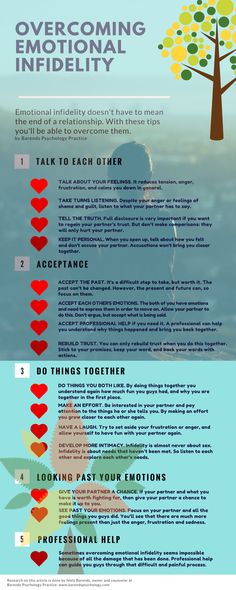 ” nine0003
” nine0003
There is no single cause for infidelity. “The lack of recognition, disappointment, the struggle for power in the family, the temptation of novelty,” transactional analyst Vadim Petrovsky lists the possible options. “As well as behavior patterns adopted from parents, which are then reproduced in our family life.”
There is a difference between a single betrayal and a double life that one of the spouses leads
A deceived partner should not blame himself for what happened. “There is something that is subject to our control, and something that goes beyond our capabilities and resources,” the analyst emphasizes. “By fully taking the blame on ourselves, we can even provoke repeated betrayals by giving the other a kind of “absolution.” nine0003
Of course, there is a difference between a single betrayal and a double life led by one of the spouses. Finding out about a long-term relationship is a harder blow. But even in this case, lessons can be learned by abandoning the role of the victim that the situation itself imposes on us. Being a victim in our own eyes and believing that we have the right to behave like a victim, we can feed the behavior of the “persecutor” with this emotional energy.
Being a victim in our own eyes and believing that we have the right to behave like a victim, we can feed the behavior of the “persecutor” with this emotional energy.
“At first, the one who has been cheated on experiences severe pain, and at this time it is difficult to think and analyze,” says family psychotherapist Elena Ulitova. “But then the pain eases a little, though it doesn’t go away completely. Then it's time to think about the reasons that caused the betrayal. nine0003
Vadim Petrovsky mentions the “asymmetry of suffering”, emphasizing that the deceived partner plays the leading role in the analysis of what happened. And the one or the one who was unfaithful should change his behavior, reassure the partner, convince him that their relationship has value.
Cheating is not something that one of the partners does to the other, it's something that happens to a couple. They intend to continue this work together. And Kirill and Maria are trying to glue the fragments, but they are not very successful.nine0003
“Not only did my self-esteem suffer, but the trust that existed between us as well. Although we stayed together, it’s hard for me to forgive her, ”Kirill admits.
“And then the husband comes back…”: rules for those who cheat
“It is wrong to think that it is enough to find the guilty person, point out his guilt and make him repent so that all problems are solved,” says family psychotherapist Inna Khamitova. - Cheating is not something that one partner does to the other, it's something that happens to a couple. The reasons for infidelity, as well as the possibility of overcoming the crisis, should be sought in the history of the two. nine0003
At our request, the experts analyzed the stories of cheating couples and identified three ways to cope with “life after cheating”: some never manage to leave this episode behind, others are distracted from it without rising to a new level, and still others come out of the test transformed.
Wounded couple
Anna cheated on Timothy a year and a half ago, with her ex-husband.
After a year of psychotherapy, they decided that they had managed to overcome the crisis. But Anna has the impression that she is still "paying" for what she did. “If I'm five minutes late, he's already nervous. I know that he searches my pockets and, whatever we happen to argue about, reopens the topic. Half the time we live in hell." Despite everything, they remain together, although they themselves cannot explain this. nine0003
According to Vadim Petrovsky, Anna and Timofey seem to be stuck in the past, they, like many other couples, have one thing left in their lives - resentment: martyrdom or even a protector. They think not so much about reconciliation, but about confirming their status as a victim, from which some benefits follow: the sympathy of others, the pleasure of condemning the "apostate", sometimes "indulgence" for their own infidelity. nine0003
Dangerous games: rules for lovers
Hence stalking, revenge... This vicious circle is difficult to break.
Adultery causes pain, which is mixed with guilt, as if the deceived partner himself was not good enough to deserve love. But if he remains in this state, he will not be able to develop within the couple. To take your part of the responsibility for what happened means to become the master of your life again.
“Responsibility frees one from guilt,” Elena Ulitova is convinced. “Because we understand that the reason for what happened is not in what we are by nature, but in what we did or, on the contrary, did not do.” Staying together is not an end in itself and is not synonymous with success. “When both partners turn a blind eye to treason, silence becomes the defining feature of the union,” says Elena Ulitova. “Under these conditions, marriage can technically survive, but family life is dying.” nine0003
How to get out of the crisis
- Give up the role of a victim or an executioner, which dictates the situation
- Stop measuring everything by the measure of past or possible future infidelity
- Play an active role, strengthen communication with a partner, instead of living in fear of another betrayal
A couple who survived
Marina had been living with her friend for a year, when during a business trip to Austria she met a man who “had some kind of electricity”.
“I knew it wouldn’t be for long – we are from different countries, and I appreciated my friend and our common life with him,” she says. A few months later, she confessed everything to him. nine0003
“He didn't talk to me for two days. But we were invited to a family party, and he asked me to come to pretend that everything was in order. I took advantage of this to talk to him and explain that if I was going to leave, I would have already done so. It seems that I managed to calm him down, and I never felt unnecessary jealousy on his part. But this topic has become taboo for us.”
Marina and her friend are among those who managed to keep the couple together. “For some, maintaining family, social boundaries and financial stability, staying together despite infidelity, is more important than enjoying mutual desire, and this should be respected,” Elena Ulitova notes. nine0003
With such couples, she tries to find out what the relationship on the side has taught them, and takes into account their suffering: experienced by those who were cheated on and those who abandoned their new love.
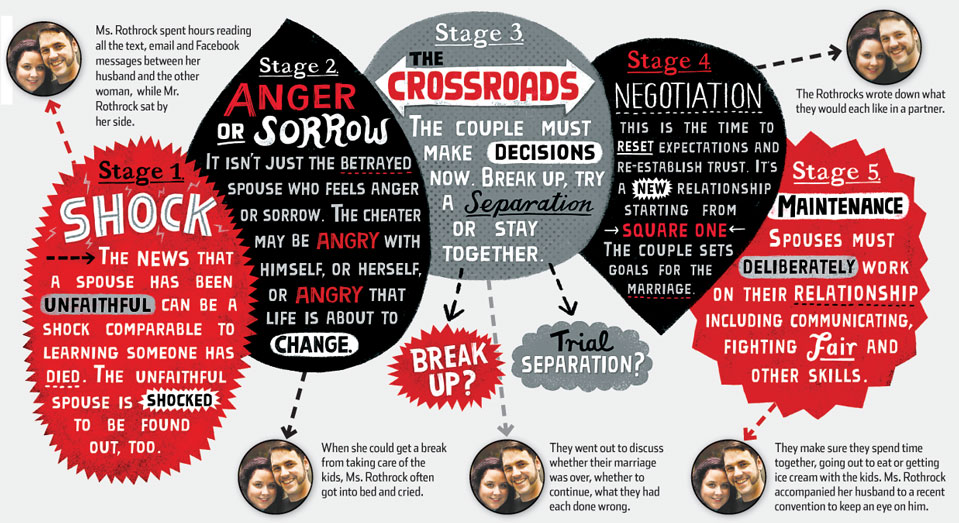
“Often these couples are happy that they have found their place, found peace again and got rid of bitterness. They stay together because they like their life,” says Elena Ulitova. “But it is important that such a decision be made out of mutual desire, and not out of a feeling that we are morally obliged. Otherwise, we risk increasing the distance and losing sincerity in relationships.” nine0003
Sooner or later, the couple will be involved in a situation associated with strong feelings, and then conscious control will be lost. “They avoid subtle, complex, delicate moments to maintain a semblance of well-being.” But silence does not mean forgetfulness. Lack of clarity threatens credibility.“Relationships become more formal,” the therapist continues. - Both sides are afraid to deepen them: after all, genuine experiences are hidden in the depths. If you move there, you don’t know what you will meet, and so fear arises. So, it is better not to interact on an emotional level, but to support the “I'm fine, you're fine” scenario.
Such interaction can bring satisfaction, but within its framework it is impossible for the couple to develop either on an intellectual, or on a sensual, or on a parental level. nine0003
But are such couples doomed to an alienated, ritualized relationship in which genuine warmth never emerges?
“Sooner or later the couple will be involved in a situation associated with strong feelings, and then conscious control will be lost,” Alexander Orlov answers this, “offenses, disappointment, suffering will break through - all feelings that for the time being were covered in silence ".
Such a “breakthrough” can lead to a final break, but can be life-saving if the two agree to an open conversation. nine0003
Start over
- Understand what the true goals and desires of both are, not just fulfill moral or social obligations
- Talk about the values on which the couple is based, recognizing that they could change also the suffering of the one who stays in the family, refusing new love
A couple on the path of development
Daria always repeated: “If one fine day I find out that you have changed, I will pack my things at that very moment!” But when it actually happened, she not only stayed, but tried to forgive him.
nine0003
“For almost half a year we discussed the reasons for his affair with our mutual friend. It was difficult for him and me, but thanks to these conversations, we really understood why we fell in love with each other and why we moved away from each other. Today I feel stronger. Before, I tried to agree with him in everything, but he almost left me. Now I have learned to express my own desires, and it seems to me that as a result, our relationship has become closer and more honest.
Using the infidelity crisis to transform and even revive broken relationships is possible, argues family therapist Inna Khamitova. This does not mean that this path will be easy. nine0003
“In the emotional storm that couples go through, it is difficult to keep the sequence: now “leave!”, then “hug!”; then “leave me alone!”, then “don’t leave me!” ... But having agreed to share responsibility for the crisis in relations, they begin to see a catalyst for change on the side of the novel, and not just betrayal.

The couple will also have to admit those feelings about which it is not customary to talk about - in particular, to accept the reality of experiencing sexual desire.
“You can treat it differently, you can consider it “bad”, moralize it, but this is a psychological fact, emphasizes Alexander Orlov. “This is what happened to one of the two and what the other will have to accept - without protest and condemnation.” nine0003
Those couples who manage to get out of this test with new strength enter into more mature relationshipsBut talking and understanding each other does not mean finding out all the details of the relationship. Inna Khamitova notes that excessive knowledge can be too painful and hinder reconciliation. She advises spouses not to demand a clinically accurate and inevitably painful account of what happened, but to ask what meaning he or she attaches to infidelity, what this situation can teach them.
nine0003
Those couples who manage to come out of this ordeal with renewed vigor enter into more mature relationships. They accept the notion that infidelity of the body can coexist with faithfulness of the heart, and together they try to solve the problems that arise.
“This crisis can even strengthen the marriage,” Alexander Orlov believes, “and take the relationship to a new level, but there is a condition here: one forgives the other, and the latter sincerely wants to be forgiven and asks for forgiveness.” And this is not necessarily the one who cheated, this is a mutual process in which a culture of psychological contact develops, sensitivity to the needs of another. nine0003
“You can learn and practice it,” Alexander Orlov is convinced, “and this is the best way out of the crisis, as well as the prevention of infidelity. After all, what is an attentive, empathic, understanding, sincere attitude towards another person? It's an attitude of love!"
All our experts emphasize that most marriages are concluded at the peak of romantic, loving feelings, and if they continue to be cultivated and trained, then the relationship in a couple is strengthened and developed.
And for those who doubt that the shattered relationship in a couple can be restored, they are reminiscent of the words of the playwright Bernard Shaw, who said that marriage is a series of meetings and divorces with the same person. nine0003
Get closer to each other
- Share responsibility for damaged relationships with each other and not be afraid to look for reasons for infidelity in the couple's past
- Be ready to hear what exactly your partner was looking for when he committed adultery. Be interested in his feelings and talk openly about yours
- Discuss together the original “agreement” on which life together was based, and amend it if necessary
- Reflect on what kind of loyalty we require from a partner
Text: Elena Tyuleneva, Alina Nikolskaya Photo Source: Getty Images
New on the site
“No family, no friends, no career. What am I living for?
“My wife cannot forget my betrayal and hits me in the face.

